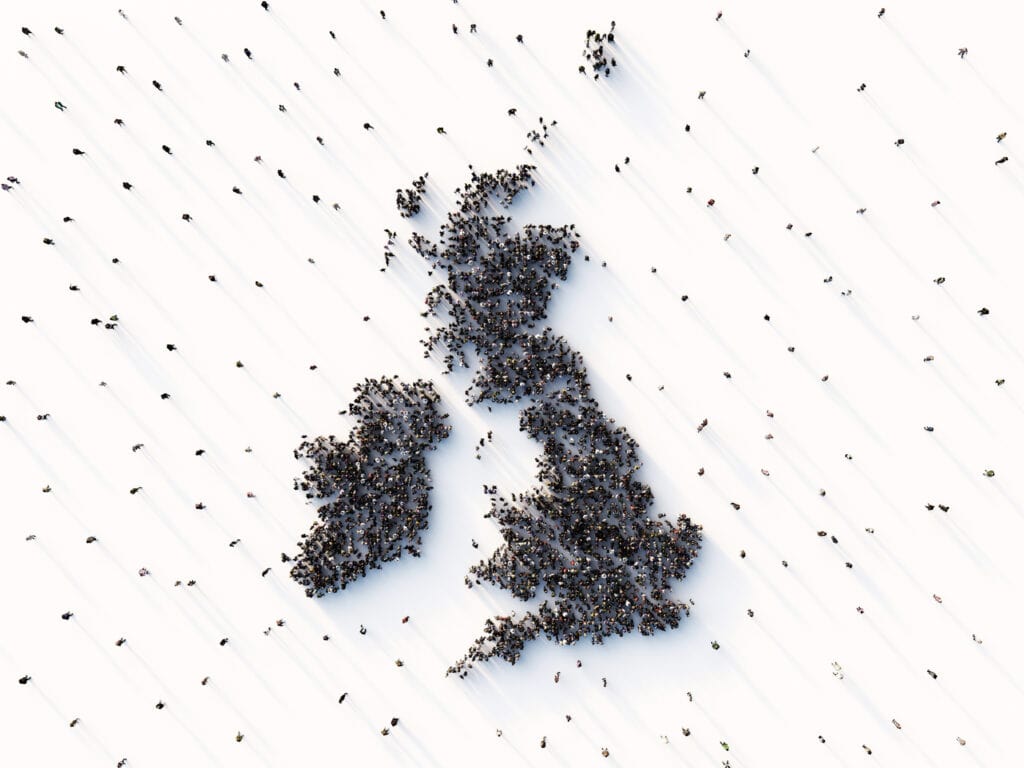Introduction
All the Discovery Decade’s polls are nationally representative, and with individual surveys of up to 8,000 people we are able to look at the results of many of the questions posed at a regional – or even city-region – level.
Although we do not see significant differences in attitudes between UK regions, or between urban and rural locations, even small variations can be illuminating and help us challenge any assumptions we might hold about regional audiences.
This briefing first provides an overview of UK-wide attitudes to questions with a local, regional or global focus, including any notable differences. We then offer summaries and key statistics for each of the UK’s 12 regions, followed by a selection of focus group quotes that are relevant to place-based discussions.
More significant drivers of differences in attitudes were age, socioeconomic group and gender, which are described in our Audience Demographics briefing.
Summary
Regional connections to R&D exist across the country
- Many associate the Golden Triangle with R&D but do see connections closer to home: When asked which regions do the most R&D, 69% selected London and 29% the South East. No other region was selected by more than 18% overall, but there was a familiarity effect where people were more likely to also select their own region.
- Regional associations are driven by universities, the NHS and businesses: When asked if they associate their region with R&D, around 40% say they do. This falls to a third in the South West, and is highest in London and Scotland. These associations are driven by universities, NHS and businesses but historical links were more prominent in Scotland and former industrial regions.
- Medical and industrial research were common links to local R&D: When asked to describe past or present R&D in their area, 51% cited medical and 23% industrial research, such as steel and car industries. In common with focus group participants, some also named specific businesses, such as GSK, BAE Systems and Dyson.
Regional and local R&D activity is supported for its spillover benefits
- Regional R&D is important to most people: In all regions, a majority said it was important their region carries out a lot of R&D, reaching 79% in the North East and 76% in Northern Ireland.
- Most people also support R&D activity in their local area: Overall, 66% of people would support a new research lab being built in their local area; as many as would support a new school or wind farm. This proportion rises to 75% in the North East.
- Spillover benefits to local economies and jobs are the main drivers for support: 71% of those who thought it was important their region did a lot of R&D cited local jobs, and 64% inwards investment. Similarly, 62% of those who expressed support for a new research lab chose local economic benefits and 60% well-paid jobs in the area.
There is appetite for more information and trust in local messengers
- Knowledge of local R&D is low but there is appetite for more: Overall, 66% said they knew hardly anything about research in their area, but 65% would like to hear more.
- Open days sparked interest among the public: When given a list of ways in which they could hear more about local R&D, around a third of people selected open days at a local research institution (32%) or university (29%).
- The public trusts local messengers: 56% said they would trust people who work in R&D in their area to talk honestly about its benefits.
Download the full regional analysis




